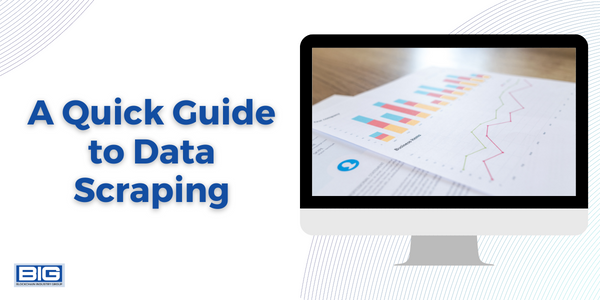
Data scraping, also known as web scraping, is the process of extracting data from websites and other online sources. It is a valuable tool for businesses and researchers who need to collect and analyze large amounts of data quickly and efficiently. In this guide, we will take a closer look at what data scraping is, how it works, its applications, and some of the legal and ethical considerations surrounding it.
What is Data Scraping?
Data scraping is the process of using software to extract data from websites and other online sources. The software, known as a web scraper or data scraper, collects data from web pages and stores it in a structured format, such as a spreadsheet or database. Data scraping can be done manually, but it is typically automated to save time and improve accuracy.
How does Data Scraping work?
Data scraping works by using a program or script to visit web pages and extract data from them. The scraper identifies the data to be collected based on the page’s HTML code and stores it in a structured format, such as a CSV file or database. Web scrapers can be programmed to collect data from multiple pages or entire websites, making it possible to gather large amounts of data quickly and efficiently.
Applications of Data Scraping
Data scraping has a wide range of applications across industries. Some of the most common applications include:
- Market research: Data scraping can be used to collect data on competitors, pricing, and customer behavior, allowing businesses to make more informed decisions.
- Lead generation: Data scraping can be used to collect contact information for potential customers, making it easier to target and reach out to them.
- Content aggregation: Data scraping can be used to collect news articles, blog posts, and other content for use on websites and social media.
- E-commerce: Data scraping can be used to collect product information, pricing, and availability from competitor websites, making it easier to adjust pricing and stay competitive.
Legal and Ethical Considerations
While data scraping can be a powerful tool for businesses, there are legal and ethical considerations to keep in mind. Some websites explicitly prohibit data scraping in their terms of service, and scraping data from these sites could lead to legal action. Additionally, some types of data, such as personal information or copyrighted material, are protected by law and cannot be scraped without permission.
Creating Viral YouTube Shorts Videos
—
Data Scraping for Lead Generation
—
Deciding Between Inbound vs Outbound Mktg
Ethically, data scraping raises concerns about privacy and consent. Businesses should be transparent about what data they are collecting and how it will be used. They should also ensure that the data is being collected in compliance with relevant laws and regulations.
Conclusion
Data scraping is a valuable tool for businesses and researchers who need to collect and analyze large amounts of data quickly and efficiently. It can be used for market research, lead generation, content aggregation, and e-commerce, among other applications. However, businesses must be aware of the legal and ethical considerations surrounding data scraping, and ensure that they are collecting data in compliance with relevant laws and regulations.



